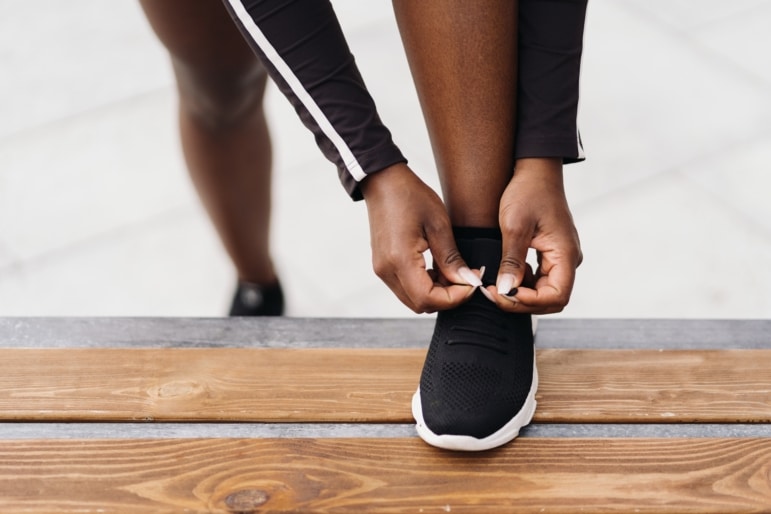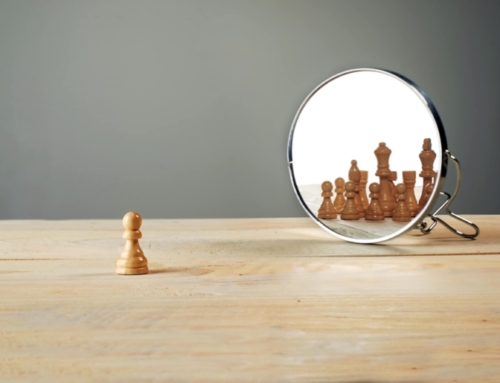Have you ever paid good money to join a health club and then stopped attending after about four months? That, by the way, is the average attendance before monthly health club subscribers stop going.
Have you ever decided on any other exercise promoting activity that then withered away? Like twice or thrice weekly jogs around the neighborhood that turned into jogs only when the weather was “good” and only when you weren’t “too tired from the long day.”
If so, you are not alone. In fact, you’re part of the silent majority. Why silent? Because many people who fail to sustain an exercise regimen and see it fade away, blame themselves for their lack of grit or perseverance, or for their “laziness.” I heartily include myself in this group, many times over. Such an attitude of feeling shame or guilt about one’s laziness has long cultural and religious roots.
Here’s some good news: consider the following information to help you see things in a more beneficial way, that is, one more likely to lead to desired results. Shame, guilt, and beating oneself up only go so far in changing behaviors.
In 2015 researcher and author Daniel Lieberman wrote a paper “Is Exercise Really Medicine? An Evolutionary Perspective.” He argues that for most of our evolutionary history, “expending energy for its own sake,” that is, on any activities whose goal was something other than to directly enhance safety, shelter, or food acquisition were not adaptive. Our hunter-gatherer ancestors struggled to acquire enough calories to survive, procreate, and raise children long enough so that the children themselves could procreate. Therefore, conserving energy enhanced survival. It would have been unthinkable and evolutionarily suicidal to expend energy on “exercise.”
Therefore, for any of us who seek to become more active for reasons of well-being, we must realize that we are programmed to actively avoid what we now call “exercise.” This is not to admit defeat – far from it – but rather to develop better strategies through a change in perspective, one that accepts that we are naturally avoidant of “exercise” and to actively finds ways to counteract those tendencies. Here are some ways of conceptually “converting” exercise into something more rewarding to consider:
- Training – Movement with a Purpose: Any time we exercise we do so with the purpose of enhancing our well-being. But jogging around the streets early in the morning or late in the evening can feel senseless in that moment of reckoning when the decision must be made to either get out there … or not. The rewards are indirect, far in the future, and far from assured. The costs of jogging when you don’t feel like it are direct, immediate, and assured. So, the goal here is to add purpose to each and every run, weightlifting session, and aerobics class. One way to do so is to convert “exercise” into “training.” Consider signing up for a half-marathon (or less or more than that) three to six months in the future. Then each and every exercise session – I meant to say “training session” – has the concrete purpose of preparing you to succeed in your upcoming event.
- Sports: One effortful activity many humans have a natural affinity for is sports. So, convert “exercise” into “doing sports” by joining a neighborhood sporting activity or sports team. In my neighborhood platform tennis is popular among the parent set. And in the city (of Chicago), softball leagues are extremely popular among both men and women.
- Social Activity: Solitary exercise works for some people some of the time. For example, running can be a time of “entering the zone,” a meditative state of mind-body connection, oneness with the universe, and present-focus. However, many other people, at least part of the time, do better when their physical activity has a social dimension. So, consider converting “exercise” into “social events.” Running or cycling clubs are popular. Classes of all types of activities are available just about everywhere. You can choose yoga, cross-fit, and spin classes, just to name three. Many of these classes are run by small mom-and-pop outfits that take the effort to make all participants feel they are part of the group and participating in something bigger than themselves. They often hold readings, social minglings, outside trips, and more.
I’ll leave you with a parting thought; even a little physical activity goes a long way. Author Gretchen Reynolds in her book The First 20 Minutes highlights just how little it takes to get or stay healthy. She writes that it is the first 20 minutes of light to moderate exercise – just moving around –that provides most of the health benefits. She wisely points out that one internalized message sedentary people have regarding exercise is equating it with weight loss. And, since weight loss is challenging and often not-forthcoming, they give up. Based on these expectations, there appears to be no value in standing rather than sitting, and walking rather than driving. But fitness and weight loss are not the same as health benefits. So, a sedentary person who begins to stroll for 20 minutes a day may or may not lose weight, but they WILL decrease their risk of illness and premature death!
Until next time,
Dr. Jack
Language Brief
“My grandmother started walking five miles a day when she was sixty. She’s ninety-seven now, and we don’t know where the heck she is.” – Ellen Degeneres
“I believe that every human has a finite amount of heartbeats. I don’t intend to waste any of mine running around doing exercises.” – Neal Armstrong
“If you are in a bad mood go for a walk. If you are still in a bad mood go for another walk.” – Hippocrates
“What if you did everyday what you wished you would have?” ― Julieanne O’Connor
“Spend three months doing something and you’ll think you’ve been at it forever.” ― Alberto Madrigal







Leave A Comment